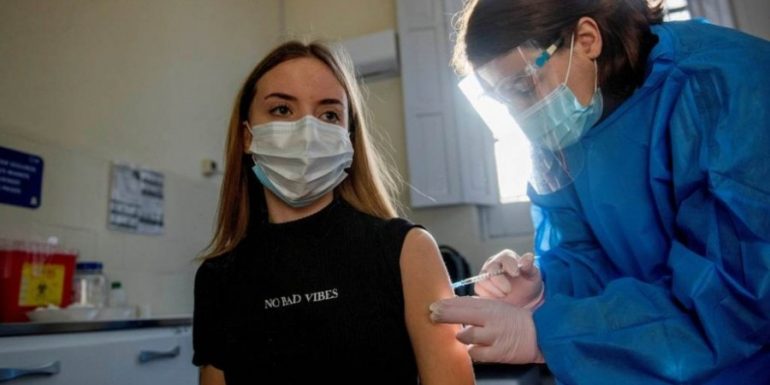The reluctance or refusal to get the coronavirus vaccine may also be related to the existence of traumatic experiences from childhood, such as neglect or abandonment by parents, domestic violence or substance abuse in the family environment, according to a new British scientific study, which highlights an invisible psychological factor that puts obstacles in the way of the vaccination campaign. People with childhood trauma are up to three times more likely to be vaccinated than those who have not had such experiences as children.
The researchers, led by Professor Mark Bellis of the University of Bangor in Wales, who published the paper in the British medical journal BMJ Open, analyzed data on 2.285 people who were asked to respond to their past as well as current their views on vaccines and their degree of confidence in relevant health and scientific information. Half (52%) did not report any childhood mental trauma, while the rest had experienced one or more before the age of 18, such as physical, verbal or sexual violence, parental separation, exposure to domestic violence, living in a family with a member had a serious mental illness, where substance abuse (alcohol, drugs, etc.) took place or where a parent was imprisoned. About 20% (one in five) had a childhood injury, 17% (one in six) reported two to three, and 10% (one in ten) four or more.
The more childhood traumatic experiences a person has, the less likely he or she is to have little or no confidence in the information and recommendations of health authorities, to feel unjustified by government restrictive measures due to the pandemic (such as mask use, distance keeping, etc.) and to violates, as well as not wanting to be vaccinated.
Vaccine denial rates were three times higher among those who had four or more childhood traumatic experiences than those who had none. The same people - especially younger men - were four times more likely to reject compulsory mask use, and this group was also almost twice as likely to periodically violate pandemic restrictions (38% vs. 21% of those without children). injuries).
The researchers estimated that rates of vaccine rejection by age group due to childhood trauma ranged from 3,5% in those over 70 with almost no childhood trauma to 38% in people aged 18-29 with four or more traumatic childhood experiences. . Other research in the past has linked childhood trauma to poor mental health later in life and has shown that these children tend to have generally low self-esteem when they grow up, including on health issues.
Source: RES-EAP
